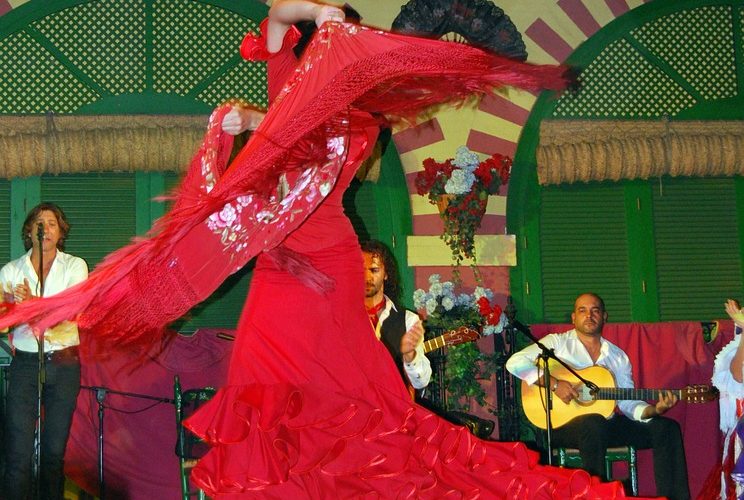The European Court of Justice gave its judgment in case C‑562/17 (Nestrade SA) on 14 February 2019. The case deals with the question how the 13th Directive on VAT refunds to non-EU persons must be interpreted.
Facts (simplified):
Note from the editors: We usually don’t mention dates etc. in our summaries, as we want to focus on the underlying VAT questions more than on the procedural elements. But in this case, the dates are relevant, so we mention them.
- Nestrade SA, which has its registered office and tax residence in Switzerland, carries out transactions subject to value added tax in Spain.
- On 21 September 2010, Nestrade submitted a 13th Directive VAT refund claim with the Spanish tax authorities. This concerned VAT charged to Nestrade by its supplier Hero España, S.A. (‘Hero’) during the third and fourth quarters of 2009. Nestrade also applied for the refund of all the other amounts of VAT paid in the years 2008 to 2010 on the supply of goods by Hero.
- The Spanish tax authorities requested Nestrade to provide invoices corresponding to the supplies of goods by Hero (‘the correct invoices’), because the invoices originally produced showed Nestrade’s Dutch VAT identification number, whereas it was, according to the Spanish tax authorities, the Swiss VAT identification number which should have been indicated on those invoices.
- The Spanish tax authorities asked Nestrade to produce, within 10 working days of notification of the demand, which was given on 13 December 2010, the correct invoices issued by Hero. Nestrade did not respond to that request within the time limit prescribed.
- On 10 January 2011, Hero issued the corrected invoices for the third and fourth quarters of 2009.
- On 5 April 2011, the tax authorities gave a decision refusing to refund the sum of EUR 114 662.59 claimed in respect of the third and fourth quarters of 2009 on the ground that it was unable to determine whether the claim was well founded.
- That decision, which was not challenged by Nestrade, became final on 14 May 2011.
- On 5 August 2011, Nestrade again requested the Spanish tax authorities to refund the amounts of input VAT paid during the years 2008 to 2010 and, in addition, also requested the refund of amounts of input VAT paid in the period from January to March 2011. On that occasion, Nestrade produced the corrected invoices and cancelled the invoices originally issued by Hero for each of those years, including in relation to the third and fourth quarters of 2009.
- The spanish tax authorities decided, on 12 December 2011, in the first place, to grant the refund of the amounts of input VAT paid in 2008 and 2010, and in respect of the first and second quarters of 2009, making a total of EUR 542 094.25.
The authorities considered that Nestrade had responded to its requests and had produced the corrected invoices sought. It granted the refund once it had verified that all the requirements in that regard were met.
In the second place, the authorities refused to refund the amounts of VAT corresponding to two invoices issued by Hero in respect of the third and fourth quarters of 2009. That refusal was based on the fact that that refund had been refused by the earlier decision of 5 April 2011, which had become final on 14 May 2011.
Nestrade did not agree with this, and the Spanish High Court decided to ask the following preliminary questions to the ECJ:
‘(1) Can the rule [established by the judgment of 8 May 2013, Petroma Transports and Others (Case C‑271/297, EU:C:2013:297)] be qualified so as to allow a VAT refund sought by an undertaking not established in the European Union, even though the national tax authority has already issued a decision refusing the refund on the grounds that the undertaking had failed to respond to a request for information concerning its tax identification number, in view of the fact that the authority was in possession of that information at the relevant time since it had been provided by the undertaking in response to other requests?
If that question is answered in the affirmative:
(2) Does a retroactive application of the rule [established by the judgment of 15 September 2016, Senatex (Case C‑518/14, EU:C:2016:691)] mean that an administrative act refusing the refund of the VAT in question must be revoked, in view of the fact that the act merely upheld a previous final administrative decision refusing the VAT refund, which was adopted by the AEAT using a procedure which was not the procedure laid down by law for that situation and which, furthermore, curtailed the rights of the applicant, depriving it of a legal remedy?’
Judgment:
The European Court of Justice rules as follows:
The Thirteenth Directive must be interpreted as not precluding a Member State from imposing a time limit on the possibility of rectifying incorrect invoices, for example by the rectification of the VAT identification number originally shown on the invoice, for the purposes of the exercise of the right to a VAT refund, provided that the principles of equivalence and effectiveness are respected, which it is for the referring court to verify.
Note from the editors: The decision of the ECJ is that Spain was allowed, first of all, to ask for a correction of the invoices, and to set a deadline. As Nestrade did not respond within this deadline, and did not appeal against the decision to deny the VAT refund, also not after it had obtained the correction invoices, it is not unreasonable that the Spanish tax authorities denied the VAT refund request for these invoices when they were submitted the second time.
The case makes it clear that it is very important that a company has the correct invoices when submitting a VAT refund claim, and that the deadlines for submitting a VAT refund request and responding to questions should not be missed.
Source: Curia














